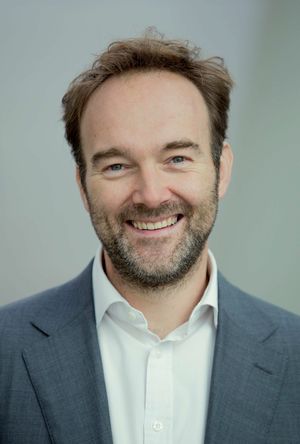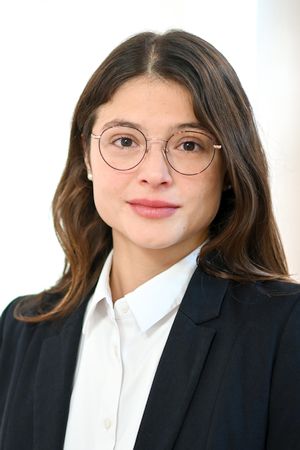A Primer on Digital Markets and Platforms
A Primer on Digital Markets and Platforms
| Angeboten von: | Prof. Dr. Tobias Kretschmer | ||
| Anbietende Hochschule: | Uni München (LMU) | ||
| Kurssprache: | Englisch | ||
| Wissensgebiet: | Wirtschaftswissenschaften | Kostenfrei | |
| Durchschnittliche Bearbeitungszeit: | 15 Stunden | Kostenfrei | Einschreiben |
| Bildnachweis: miftakhudin (on Noun Project), edited by Ambre Nicolle | |||
Was können Sie in diesem Kurs lernen?
Learning goals: This course offers an introductory overview of the economic principles driving the significant 'megatrend' of digitization and the rise of platform business models. By the end of this course, students will understand the key phenomena of digital platforms and markets. They will examine how these platforms are transforming traditional industries and altering economic landscapes.
Students will engage with the concept of digital markets and platforms across different levels:
- At the market level: Students will gain insights into the shift from conventional to digital firms, exploring the broader economic impacts of digitization.
- At the platform level: The course will cover the roles and dynamics within platform ecosystems, focusing on the interactions between the platform, consumers, and complementors.
- At the firm level: There will be discussions on the strategies digital firms employ and the implications of these strategies for competitive positioning and market dynamics.
- At the individual level: The course will also touch on user behavior and preferences in digital spaces, exploring how digital platforms shape consumer decisions and experiences.
This approach provides students with a foundational lens through which to view the complexities of digital markets and platform models, preparing them to understand and engage with these evolving sectors.
Gliederung
A. Foundational
A1. Network Goods and Network Effects
A2. Characteristics of Two-Sided Markets
A3. Pricing Strategies in Two-Sided Markets
A4. From a World of Scarcity to a World of Abundance
A5. Non-Pricing Strategies in Two-Sided Markets
A6. Experience Goods: Reputation and Feedback Systems
B. Platforms & Ecosystems Dynamics
B1. Complementors: Heterogeneity and Strategies
B2. Adoption and Diffusion
B3. Compatibility: Strategies and Impacts
B4. Platform Orchestration Activities
B5. Competition in Platform Ecosystems
C. Digital markets
C1. How (Big) Data Affects Firms and Consumers
C2. Pricing in the Digital World
C3. Competition Policy
C4. Artificial Intelligence and The Economy
C5. Consumers and Social Issues
Angeboten von

Tobias Kretschmer is a Professor of Strategy, Technology and Organization (ISTO) at LMU Munich School of Management. He holds a PhD in Economics from London Business School and an MSc in Strategy from the University of St. Gallen. Prior to joining LMU Munich, he held full-time positions at London School of Economics and INSEAD. He is a Research Fellow at the Centre for Economic Policy Research in London and a Research Professor at ifo Institute in Munich. His work focuses on strategy and organization design in technology-intensive industries, especially platform markets and information and communication technologies. His work appeared in American Economic Review, Management Science, Information Systems Research, Strategic Management Journal, and Organization Science. He is an associate editor at Strategic Management Journal and the International Journal of Industrial Organization.
Weitere Mitwirkende

Ambre Nicolle is an Assistant Professor at the Institute for Strategy, Technology, and Organization at the University of Munich (LMU). Her research explores the dynamics of demand and supply in network and cultural industries, with a particular focus on digital platforms and market competition. Using structural modeling and large observational datasets, she examines how these platforms shape consumer behavior, market outcomes, and competitive dynamics. Her research has been published in peer-reviewed academic journals and has garnered support from several grants, including a Marie Skłodowska-Curie fellowship. Ambre Nicolle holds a Ph.D. in Economics from the University of Montpellier, France.

Denzel Glandel Tafur is a Research and Teaching Assistant at the Institute for Strategy, Technology and Organization at LMU Munich, starting in October 2023. He holds an M.Sc. in Economics from LMU Munich and the Pontifical Catholic University of Peru. His research focuses on organizational design, platform markets, and innovation management. Previously, he worked at the Max Planck Institute for Innovation and Competition and has extensive consulting experience in Lima. Currently, he is pursuing a PhD at LMU Munich.
Further contributions to the course:
- Safia Bouacha (formerly Research and Teaching Assistant at ISTO, LMU Munich) acted as a project manager and instructional designer for the course from January 2022 to August 2024.
- Dr. Joy Wu (formerly Postdoctoral Researcher at ISTO, LMU Munich, and currently Assistant Professor of Management Information Systems at the University of British Columbia, Sauder School of Business) contributed to the content creation of the course from January 2022 to December 2023.
- Yannick Keuker, Niclas Kolbe, and Felix Beierwaltes supported the team as student assistants.
Zielgruppe
Digital platforms and markets are reshaping modern society and business landscapes. This MOOC welcomes a diverse audience, from professionals in digital industries seeking to update their knowledge to students across fields such as economics, business, and computer science desiring a foundational understanding of digital market dynamics. It also serves those curious about the digital economy’s global impact. The course merges theoretical concepts with practical applications, making it suitable for anyone aspiring to navigate or lead in the digitally-driven business environment.
Bescheinigung der Teilnahme
If you pass at least 80 percent of all the quizzes included in the course, you can download a certificate of participation.
